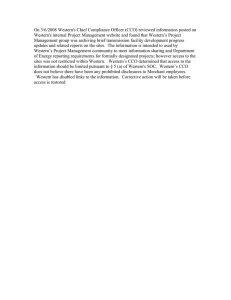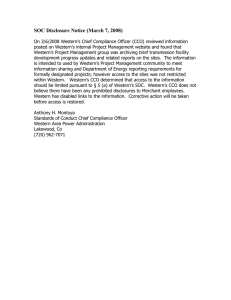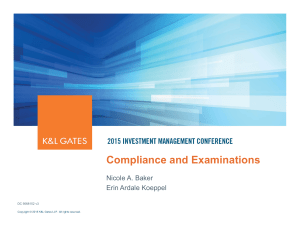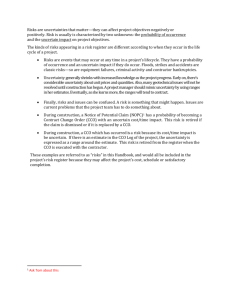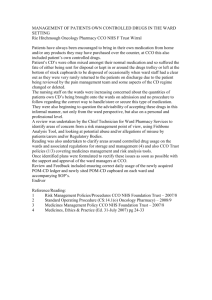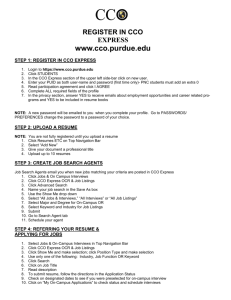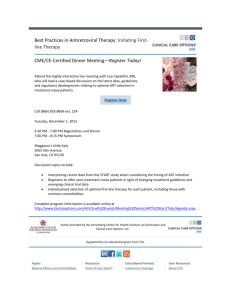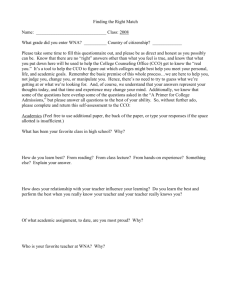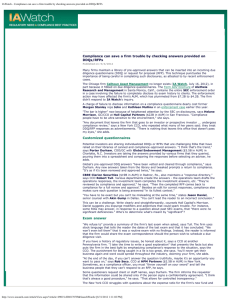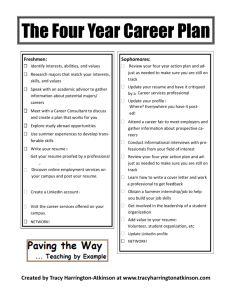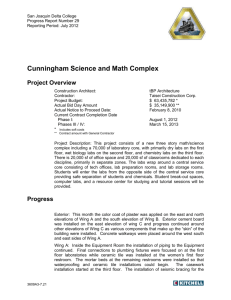Insourcing vs. Outsourcing Debate
advertisement
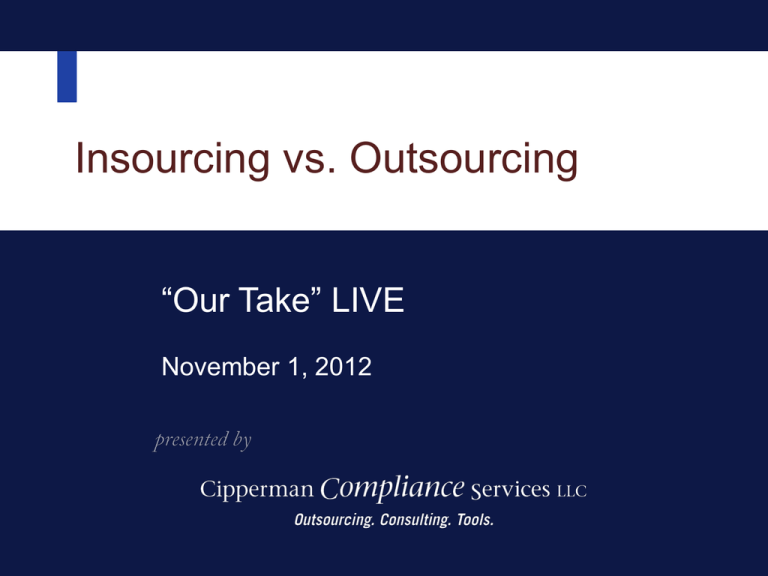
Insourcing vs. Outsourcing “Our Take” LIVE November 1, 2012 Compliance Rule (206(4)-7) • Adopt written policies and procedures reasonably designed to prevent violations of the securities laws; • Annually review the policies and procedures; and • Designate a Chief Compliance Officer (a “CCO”) 2 Regulatory Requirements • Registration/Disclosure • Fiduciary responsibility and suitability • Solicitors • Advertising • Privacy • Client Agreement • Proxy Voting • Anti-Money Laundering • Proxy Voting • Fees • • • • • • Custody Trading Insider Trading Supervision and licensing Code of Ethics Inspections and Enforcement • Section 13 filings • Recordkeeping • Compliance 3 What is Compliance? • Appoint a CCO • Implement/Maintain compliance manual • Ongoing testing of policies and procedures • Annual review and report of findings • Risk Assessment • Monitor operations • Training • Compliance committee/management review • Compliance calendar • • • • • • • • • • • Compliance calendar Certifications and notices Licensing Investigate misconduct Manage regulatory inquiries and exams Code of Ethics and preclearance ADV updates Review marketing materials SEC filings Respond to Clients/Boards Due diligence service providers 4 Risks of Noncompliance • Public sanction – reputation and client risk – competitiveness • Civil sanctions: bans from industry • Civil monetary penalties – Rescission – disgorgement • Criminal prosecution • Increased examination and regulatory focus 5 Compliance Programs: Enforcement Lessons • Actions against firms for weak compliance programs (In re Asset Advisors et. al.; In re Wunderlich; In re JSK Associates; In re Alpine Woods) • Template or incomplete compliance manuals (BD WSPs) • Inadequate testing and annual reviews • No training • Inexperienced or absent CCO • No implementing procedures • Failure to properly resource • Ignoring Code of Ethics 6 Delaying • Canned compliance manual • Adopt P/P but no implementation • Add CCO responsibilities to CFO, COO, Administrator • Hiring under-qualified • Allocate minimal time/resources • “We do the right thing.” 7 Insourcing vs. Outsourcing • • • • • Regulatory Knowledge Depth Business Knowledge Management Control • • • • • Leverage Independence Cost Liability Regulators 8 Knowledge & Depth • Power of numbers – Compare and benefit from combined experience – Sharing information – Industry best practices – Institutional knowledge lives after turnover • Unique person – Firm-specific knowledge 9 Management, Control, Independence • Hiring a firm ensures accountability and independence – 24/7/365 availability – Accountability – Easier to change firms than fire a person • In-house CCO reports directly to management – Control vs. loss of independent perspective – Career pathing 10 Cost and Leverage • Buying a service vs. a person – Tailor costs to firm size and needs • Ability to leverage in-house CCO for other functions – Paying compliance dollars for noncompliance functions 11 Liability and Regulators • Agreement offers direct recourse • In-house CCO can only be fired • Regulators want best practices compliance programs • Firm needs to adequately resource and empower • In-house CCO does not shield firms from enforcement actions 12 What to do? • Outsourcing: Best practices, depth, independence, accountability, sharing liability, management • Insourcing: leverage, control compliance output 13
